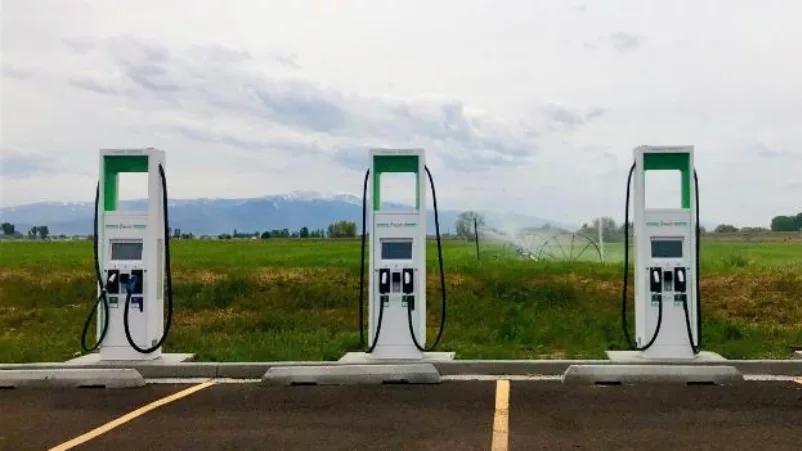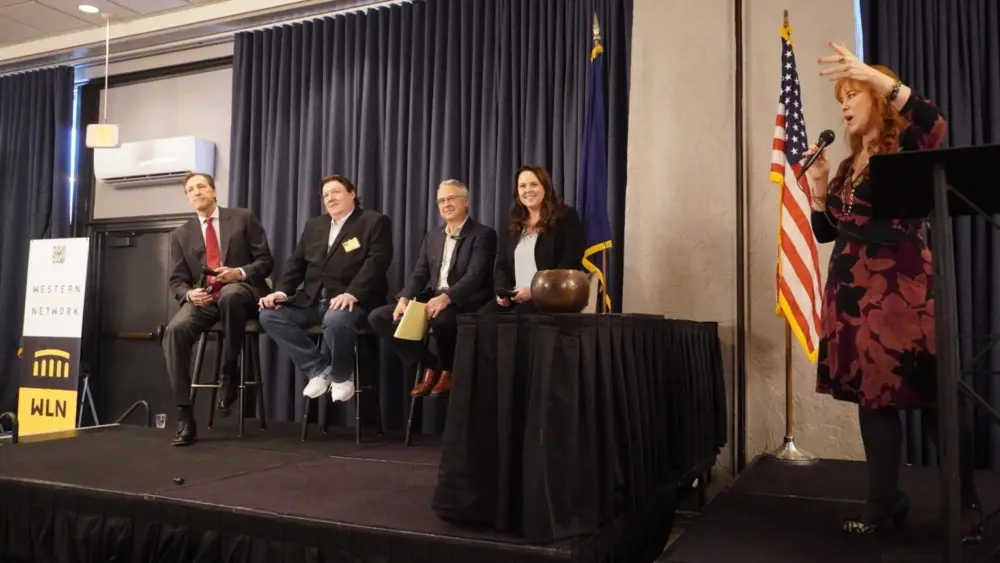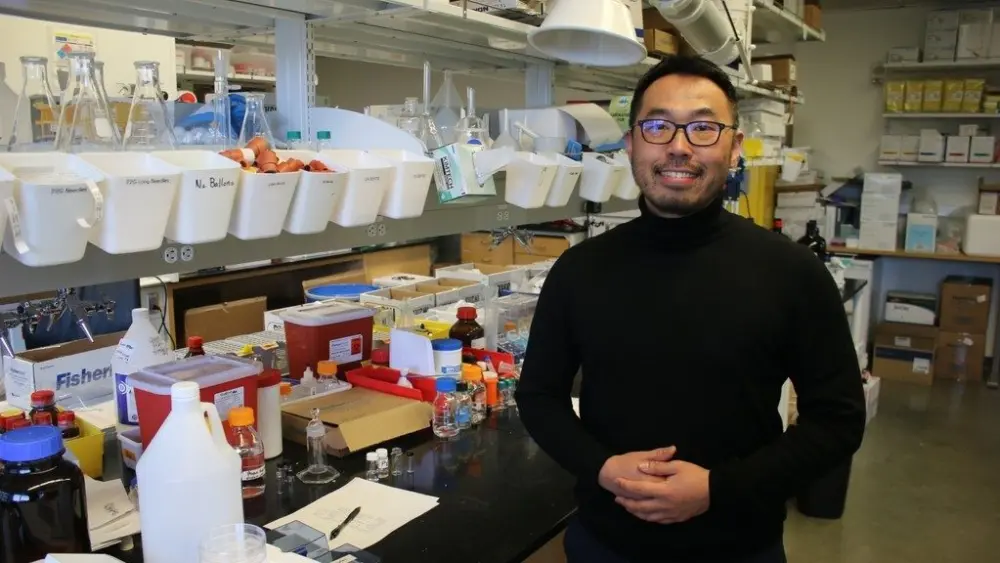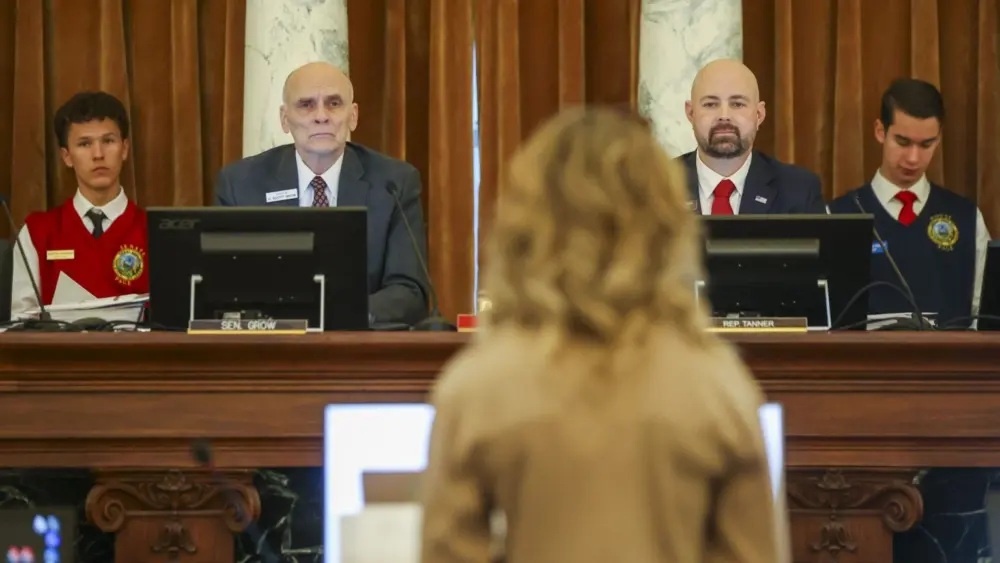BOISE, ID – The state of Idaho has paused all work on a federal program that was seeking to create a connected network of electric vehicle charging stations along every 50 miles of interstate highway, Idaho Office of Energy and Mineral Resources Administrator Cally Younger said.
The pause was implemented nearly six months ago, after state transportation officials received a Feb. 6 letter from the U.S. Department of Transportation’s Federal Highway Administration. The letter informed state officials that the new leadership of the U.S. Department of Transportation had rescinded all previous guidance for the National Electric Vehicle Infrastructure, or NEVI, program and was immediately suspending the approval of all state electric vehicle infrastructure development plans.
Under the Infrastructure Investments and Jobs act that former President Joe Biden signed into law in 2021, Idaho was set to receive about $29 million over five years for creating a network of connected electric vehicle charging stations in Idaho.
The letter pausing work on the NEVI program was sent to state transportation officials less than three weeks after President Donald Trump was sworn in Jan. 20.
State will wait for new federal guidance on NEVI Formula Program
A working group consisting of officials from the Idaho Transportation Department, Idaho Department of Environmental Quality and Idaho Office of Energy and Mineral Resources had already gathered public feedback, conducted a study, narrowed down a list of potential electrical vehicle charging stations and was preparing to move forward with the initial round of sites when work on the program was paused in Idaho.
The Feb. 6 letter says states will be held harmless for not implementing the plans they developed and indicated new state plans will need to be developed and submitted for approval in the future.
“The new leadership of the Department of Transportation has decided to review the policies underlying the implementation of the NEVI Formula Program,” the Feb. 6 letter, signed by Emily Biondi, associate administrator for the Office of Planning, Environment and Realty, states.
“As result of the rescission of the NEVI Formula Program Guidance, (the Federal Highway Administration) is also immediately suspending the approval of all State Electric Vehicle Infrastructure Deployment plans for all fiscal years,” Biondi added. “Therefore, effective immediately, no new obligations may occur under the NEVI Formula Program until the updated final NEVI Formula Program Guidance is issued and new state plans are submitted and approved. … Until new guidance is issued, reimbursement of existing obligations will be allowed in order to not disrupt current financial commitments.”
Younger said Friday that the state is waiting for guidance from the federal government before moving forward.
“Following these events, state NEVI Formula Program funds have been paused until (the Federal Highway Administration) releases updated NEVI Formula Program guidance,” Younger wrote in an email to the Idaho Capital Sun on Friday. “The Idaho Interagency Working Group is currently awaiting further guidance from (the feds).”
The goal of the NEVI program was to develop an interconnected network of electric vehicle charging stations that would make it more practical to drive an EV in Idaho, a large rural and mountainous state with few large cities.
“Through the strategic selection and prioritization of EV charging locations, Idaho will be able to support the creation of an EV charging network that will help EV drivers travel across our state with ease,” former Idaho Office of Energy and Mineral Resources administrator Rich Stover said in July 2024.
Younger confirmed that all work on the NEVI program had been paused in Idaho after the Idaho Capital Sun reached out last week requesting an update on where the program stands.
It also appears one of the websites created to gather public input about the NEVI program in Idaho, evidaho.org, has expired or been taken down.
Idaho had not contributed any state funding to the NEVI program.
This story first appeared on Idaho Capital Sun.





